Have you recently observed a change in your horse’s behavior? Is your horse more lethargic than usual, tiring rapidly after workouts? If you are noticing signs of fatigue, you’re probably becoming concerned. Is it just a passing thing or could there be a more serious underlying issue that you need to address?
In this article, we will go over some of the most common reasons why horses might suffer from fatigue. But first, let’s go over some signs and symptoms that point towards a fatigued horse to help you recognize this better in your own horses.
Is Your Horse Tired?
Like humans, horses experience regular ebbs and flows in their energy levels based on a variety of physiological and environmental factors. So, you will need to pay close attention to your mount during exercise as well as downtime to make sure that what you think you are spotting really is an issue.
Here are some signs that your horse is suffering from significant fatigue:
- Horses that are dealing with fatigue may be less responsive to your commands or to stimuli in their environments.
- If your horse’s pace has slowed down noticeably, that may be a sign of fatigue.
- Horses that are fatigued sometimes lose some of their coordination. You might notice your mount stumbling more often, for instance. Sometimes horses that are suffering from fatigue might even run into obstacles.
- Your horse could be less motivated than usual and may give up sooner while exercising.
- Speeding up or slowing down your mount may be more difficult.
- Lead changes happening more often while galloping or cantering may point toward fatigue.
- Horses that are fatigued sometimes move their heads and necks around more than those that are not.
- You might notice your horse sounds like it is fighting harder for breath, becoming winded more easily.
- Overreaching might happen more often.
- Brushing could become more frequent.
Noticing a few or more of these symptoms frequently? It is time to get to the bottom of the matter and find out why your horse is fatigued.
Here Are Some Common Reasons Why Your Horse Might Be Tired
Let’s go over some of the possible explanations for fatigue in horses. Some of these involve the environment. Others involve health. Still, others may reflect your behavior.
1. Regular training and exercise
First of all, horses do fatigue while training and exercising. It is a regular part of the process, just as it is for humans.
The Merck Veterinary Manual states,
Fatigue is a normal consequence of exercise that is continued at high intensity or for prolonged periods of time. The decreased ability of the muscle to produce force is actually a safety mechanism for the body. If fatigue did not occur and force the animal to stop, the intense exercise could cause structural damage to muscle cells and supportive tissues.
So, if your horse is performing high-intensity training or endurance training, fatigue will eventually result. There are several ways to give your horse exercise, and even groundwork exercises can result in some level of exhaustion.
You should not push a horse to continue exercising when it is becoming fatigued. If the horse decides to keep at it, it may compensate for the fatigue by making unnatural changes to its gait. When that happens, injury can result. Chances are good you have experienced this yourself at some point while exercising or doing a repetitious task.
The site says that after about 30 to 40 seconds of exercise performed at the highest level of intensity (for the animal in question), most horses will fatigue. It could take even less time than that. Fatigue associated with endurance exercises and training typically is linked to dehydration or lost electrolytes, which we will talk about shortly.
What Can You Do About It?
There is no way you can completely prevent fatigue while your horse is exercising. It goes with the territory. But you can at least try to avoid overtraining (see below).
Here are a few ways you can mitigate some of your horse’s regular workout fatigue and provide proper care after training:
- Gradually increase your horse’s strength, endurance, and stamina through regular workouts. As your horse becomes more athletic, it will take longer and harder workouts to fatigue in the future.
- Properly warm up your horse before workouts.
- Consider increasing the amount of fat in your horse’s diet. If you do this, make sure that you do it incrementally, not all at once.
- You also can give your horse a little less fiber than you normally would before exercise.
- Keep food portion sizes on the small side immediately prior to intense activity.
- Use an effective method to re-hydrate your horse after workouts. If water doesn’t seem to be sufficient, you can try using a saline solution as part of your re-hydration strategy. Your vet can advise you as to which solution would be appropriate for your horse.
2. Overtraining
If you are just exercising your horse a normal, healthy amount, some degree of fatigue will be a regular occurrence, but it should be transitory in nature. But if you regularly overtrain your horse, you could notice that fatigue lasts longer and becomes more frequent. In fact, it could even become chronic.
What Can You Do About It?
The best thing you can do about fatigue induced by overtraining is to stop overtraining your horse. Pay closer attention to signs of acute fatigue while you are working out your horse. Once you notice your horse is starting to get tired, either reduce the intensity of what you are doing or take a break.
Be extra mindful if your horse starts moving in unnatural ways as a result of fatigue during exercise. This is a sign you should immediately stop.
3. Dehydration and/or lost electrolytes
When your horse is exercising and/or it is a hot day, there will be a lot of sweating. When your horse sweats, it loses water and electrolytes. Fatigue will be the result.
What Can You Do About It?
First of all, on especially hot days, consider reducing your training routines if you can. And on extremely hot days, you probably should avoid exercising your horse much. Regardless of the weather, you should always hydrate your horse before exercise.
Dehydration and endurance-associated fatigue can be serious issues requiring immediate intervention. The Merck Manual says,
Horses competing in 3-day events or endurance rides may show signs of exhaustion, despite current practices of evaluation of recovery at rest stops. Horses can lose large amounts of fluid by sweating, and show signs of depression, fatigue, dehydration, increased heart and breathing rates, and high body temperature. These horses need urgent treatment. Horses with a high body temperature should be continuously hosed with very cold water, stood in the shade (in a cooling breeze if possible), and given fluid therapy (both oral and intravenous).
By “very cold,” the manual means almost ice cold. Here are some ways to make sure your horse drinks enough water to add to your routine. You may also want to read about horse sweating so you can see signs of what is normal or not.
4. Low blood sugar
You probably are familiar with how low blood sugar can cause human beings to feel lethargic, but did you know that the same is true for horses? It is possible that one of the reasons your horse seems tired a lot is because of low blood sugar.
Kathleen Crandell, Ph.D., a Kentucky Equine Research nutritionist, says,
In adults, the primary causes of hypoglycemia relate to the body’s increased use of available glucose or decreased production, metabolism, storage, and transport of glucose throughout the body. Glucose drives the vast majority of the body’s systems, particularly the central nervous system.
So, if there are problems with blood sugar levels, there can be nervous system issues as well. Fatigue can be among the results.
What Can You Do About It?
While it is important to make sure your horse has enough glycogen before intense exercise, the Merck Manual says,
No method of glycogen loading using adjustments to normal feeding has been described in horses. Use of glucose or other carbohydrate solutions before racing to improve performance in Standardbred and Thoroughbred racehorses has no scientific basis.
If your horse is currently eating foods that have been highly processed, you should consider replacing them with those that have been less processed.
- Avoid feeding your horse foods that have a high glycemic index to prevent blood sugar spikes and imbalances.
- Adding essential fatty acids to your horse’s regular diet might also help to regulate blood sugar.
You can discuss your horse’s blood sugar with your vet to get personalized recommendations. Seeing a vet about the possibility of low blood sugar (or high blood sugar, for that matter) also gives you a chance to confirm with blood tests whether the issue exists. That way, you can be sure you are taking appropriate treatment measures.
5. Respiratory problems
Horse and Hound discuss a variety of possible causes of central fatigue, writing,
Central fatigue can be due to a variety of factors, such as low blood-sugar levels, hormones in the blood and pain. Sensations of breathlessness can also trigger central fatigue; horses with an upper airway obstruction such as roaring or a lower airway problem such as recurrent airway obstruction (RAO), may also be more susceptible.
So, it may be worth investigating whether any respiratory issues exist, especially if your horse often seems winded.
What Can You Do About It?
If you suspect that a respiratory problem may exist, a visit to your vet is the best step you can take. Your vet can conduct an exam and help identify whether an issue with obstructions could be contributing to your horse’s fatigue.
6. Pain or inflammation
As just touched on by Horse and Hound, pain can cause a horse to experience fatigue. This could be transitory fatigue in response to transitory pain, or chronic fatigue in response to chronic pain.
It is worth investigating whether your horse might be in pain. Is there perhaps an injury you are not aware of?
Depending on your horse’s age and health, there could also be an underlying health condition contributing. For example, a horse that is developing arthritis would be experiencing pain and inflammation that could induce significant fatigue.
What Can You Do About It?
Pay attention to your horse’s body language and symptoms and see if you can spot any patterns that help you make sense of what is going on. If you cannot figure it out on your way, you should consult with a vet. This could be a chance to catch an underlying problem early and begin treatment.
You may also benefit from reading about the warning signs your horse might be in pain as well as understanding what horse injuries to watch for and treat immediately.
7. Infection
A variety of infections can lead to fatigue. Think about how you feel when you have come down with a cold or flu, for example. When your horse is infected by a virus, bacteria, or parasite, it doesn’t feel up for much either.
What Can You Do About It?
If you think your horse could have an infection, you should make an appointment with your vet. Once you identify what the infection is (if there is one), you can treat your horse and clear it up. Here are few more signs your horse needs to a see a vet that are important to keep in mind.
8. Cold weather
Did you know that if your horse gets cold enough, colic may be the result, and fatigue may follow? We will talk more about colic in general shortly. The thing to know about cold weather and colic is that exposure and/or a shortage of drinking water can lead to your horse developing it.
Why would your horse not be drinking enough in the winter? Sometimes water sources you provide might freeze, and you may not be aware of it. As a result, your horse may drink less.
What Can You Do About It?
The American Association of Equine Practitioners says,
If you observe your horse experiencing mild hypothermia (a body temperature lower than 99.5°F, signs of lethargy, and a reluctance to move), remove him from the elements so he can thaw out and recover; the sooner he gets out of the cold, the better. For owners that don’t have a barn, a garage can be a temporary substitute. You can also use warm water baths and blankets to speed up the warming process.
Check on your horse’s water supply regularly, and if you notice that any of it is frozen over, make sure you provide some water that isn’t frozen to prevent dehydration.
9. Colic
Among the most prevalent health problems that horses can develop is colic. When a horse has colic, it is experiencing abdominal pain. Colic may have a wide variety of causes, including gas, impactions or obstructions, ulcers, inflammation, infarction, or strangulation. Here is more about the types of horse colic you may be seeing.
Colic may be mild, moderate, or severe, but you should never take any chances if you think your horse has it since it can be deadly.
The British Horse Society has come up with an acronym of REACT to help people spot the symptoms and signs of colic in time.
- (R)estless or agitated
- (E)ating less or droppings reduced
- (A)bdominal pain
- (C)linical changes
- (T)ired or lethargic
Elaborating on “tired or lethargic,” the society writes:
- Lying down more
- Lowered head position
- Dull and depressed
What Can You Do About It?
If you have spotted signs of colic in your horse, a trip to the vet is in order immediately. That way, you can address the possible colic before it leads to serious harm for your horse. There are also some simple colic prevention tips you can try.
Horse Courses by Elaine Heney
- Listening to the Horse - The Documentary by Elaine Heney & Grey Pony Films
- Shoulder In & Out Training for better balance, bend & topline development with your horse
- Over 110+ Polework Exercises & Challenges to Download
- Dancing at Liberty & Creating Connection with Your Horse (11 lessons) - Grey Pony Films
10. Your horse is overweight.
Here is another simple reason why your horse could be fatigued—maybe it is overweight. Not sure what is overweight? Here is how much the average horse should weigh. It should be pretty easy to assess whether this might be the case. But if you never considered it before, you might not have thought about it as a possible cause of fatigue.
What Can You Do About It?
If your horse is so overweight as to cause fatigue, that extra weight is probably causing (or will lead to) other health issues as well. It is time to take the steps you need to in order to get your horse’s weight under control. That may mean making changes to both diet and exercise routines.
 If You Need To, Consult With a Vet
If You Need To, Consult With a Vet
We have now reviewed a list of some of the most common reasons why a horse might be fatigued. Occasional transient fatigue is usually no big deal and is expected—especially during exercise. But when fatigue is particularly pronounced, frequent, or even chronic, you should try and figure out what is going on.
It might be that all you need to do is make some simple changes to your horse’s routines. You may need to make a few dietary adjustments or avoid overtraining your horse. Hopefully, that will be enough to get your horse back to feeling and performing at its best.
But if there is an underlying issue, catching it early is the best thing you can do. So, if you are in any doubt, you should consider taking your horse to the vet to identify why your horse seems to be tired all the time. With the right treatment, you should not only be able to help your horse feel better, but also protect its long-term health so you can enjoy many years of riding together.

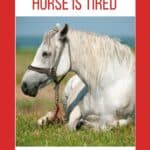
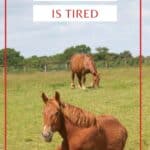
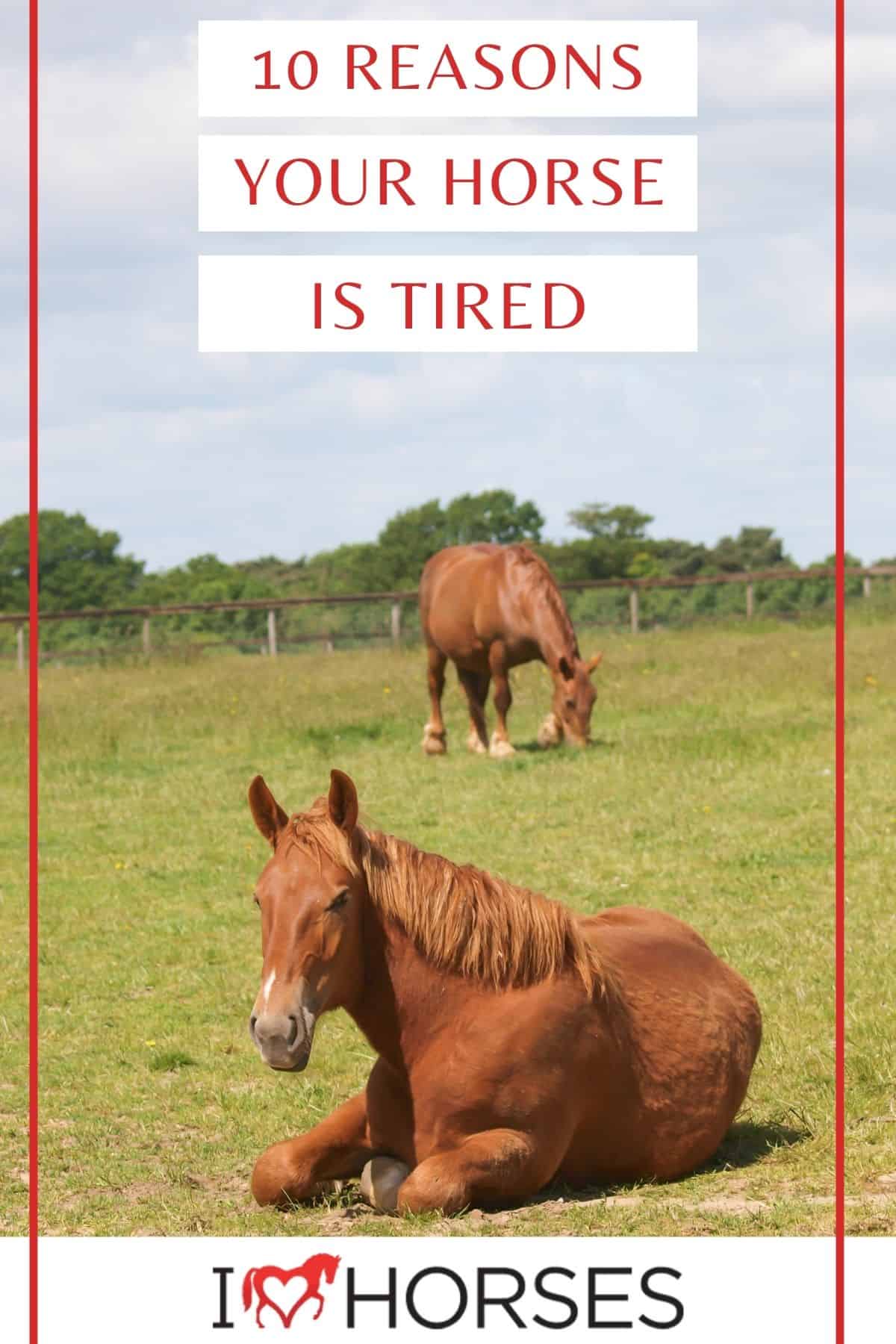
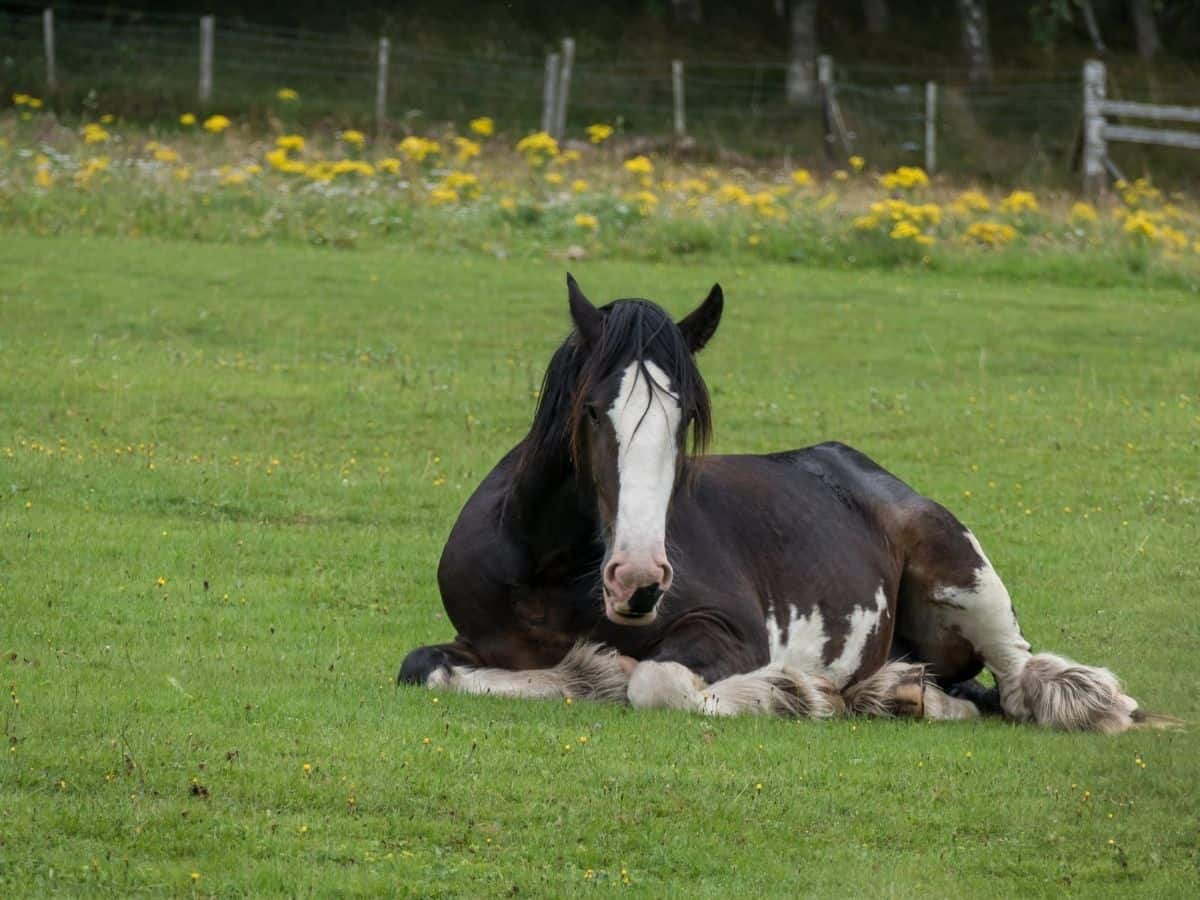
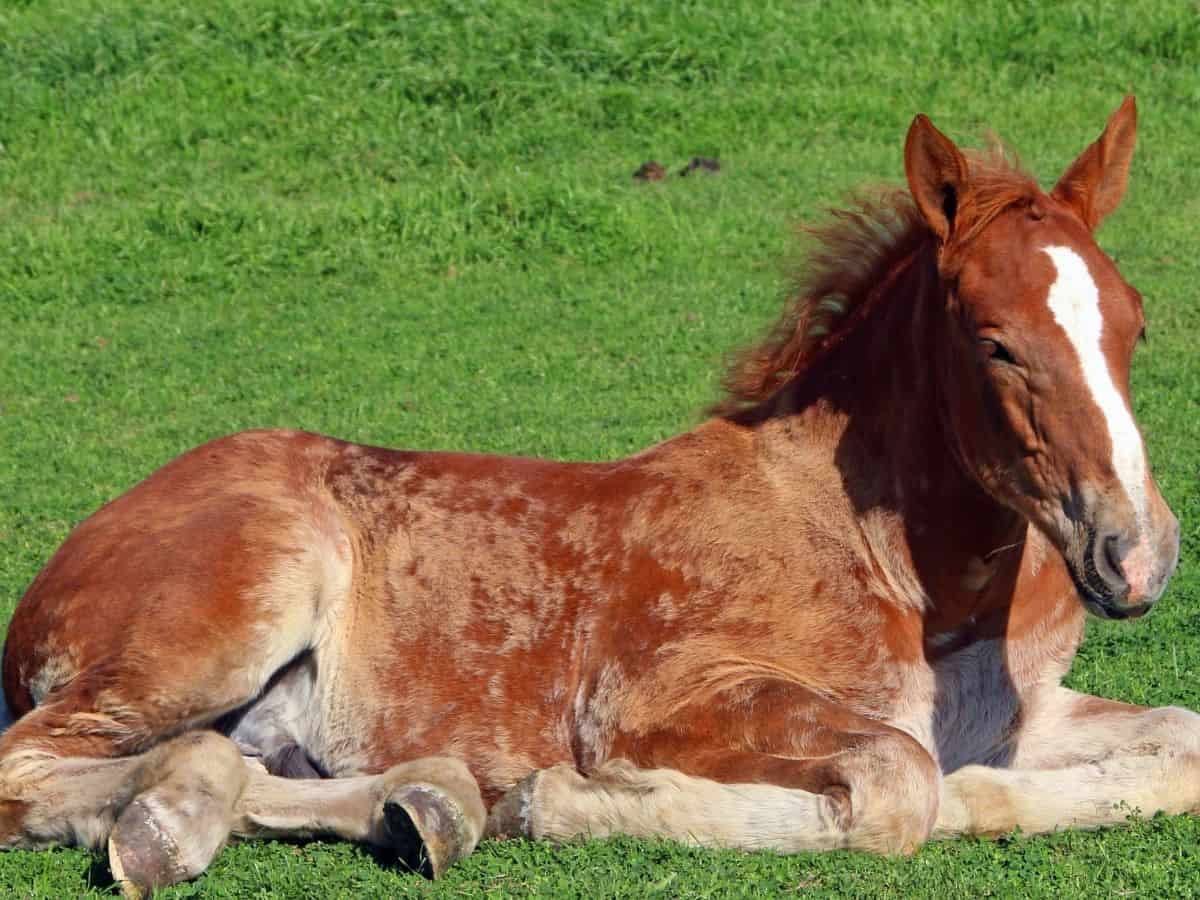
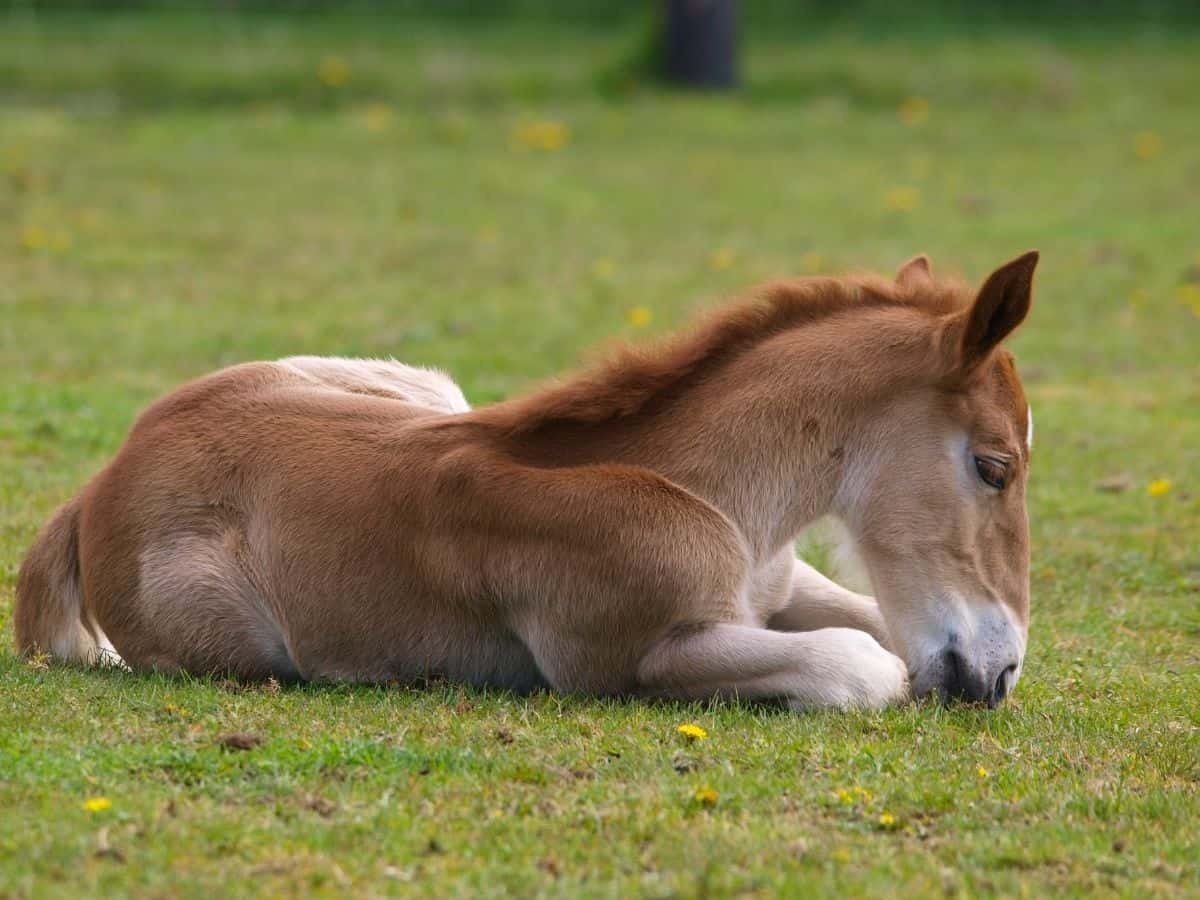
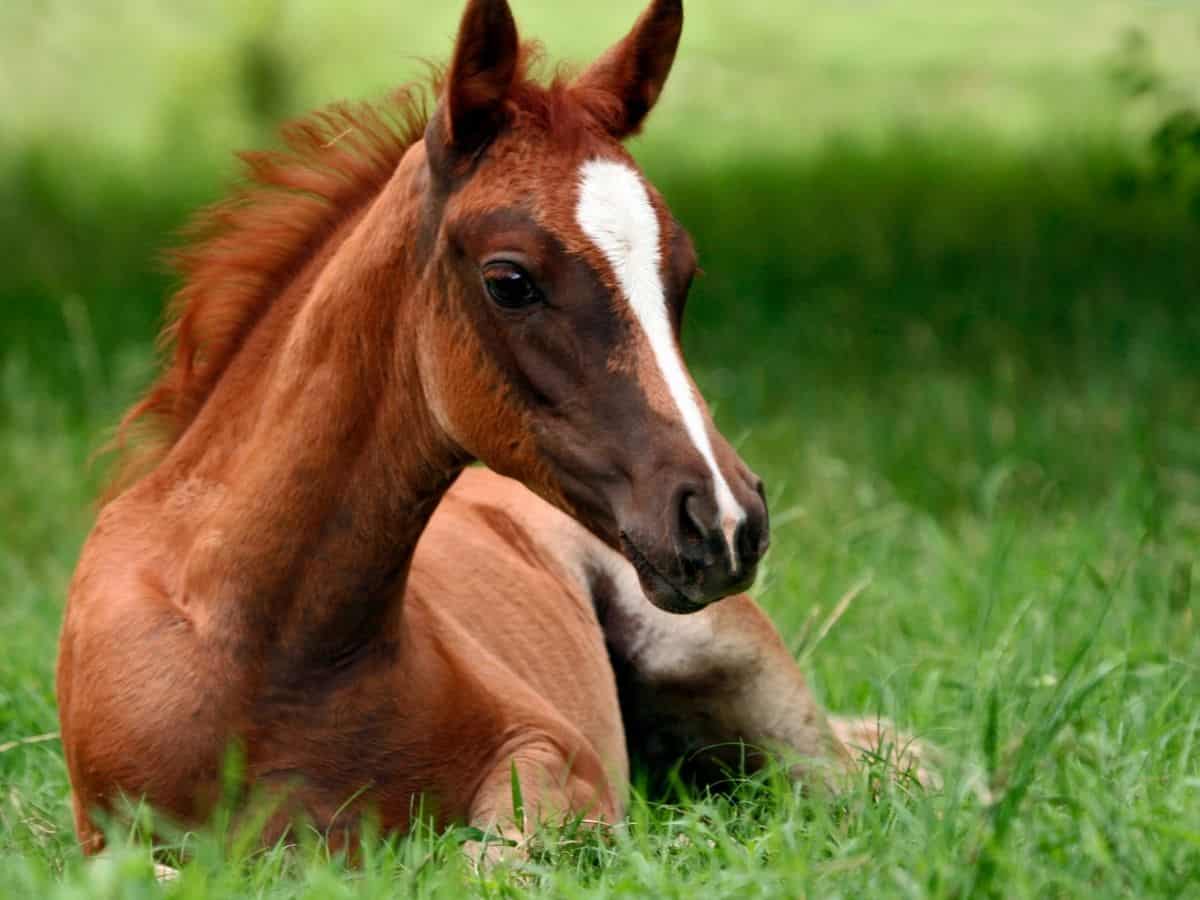
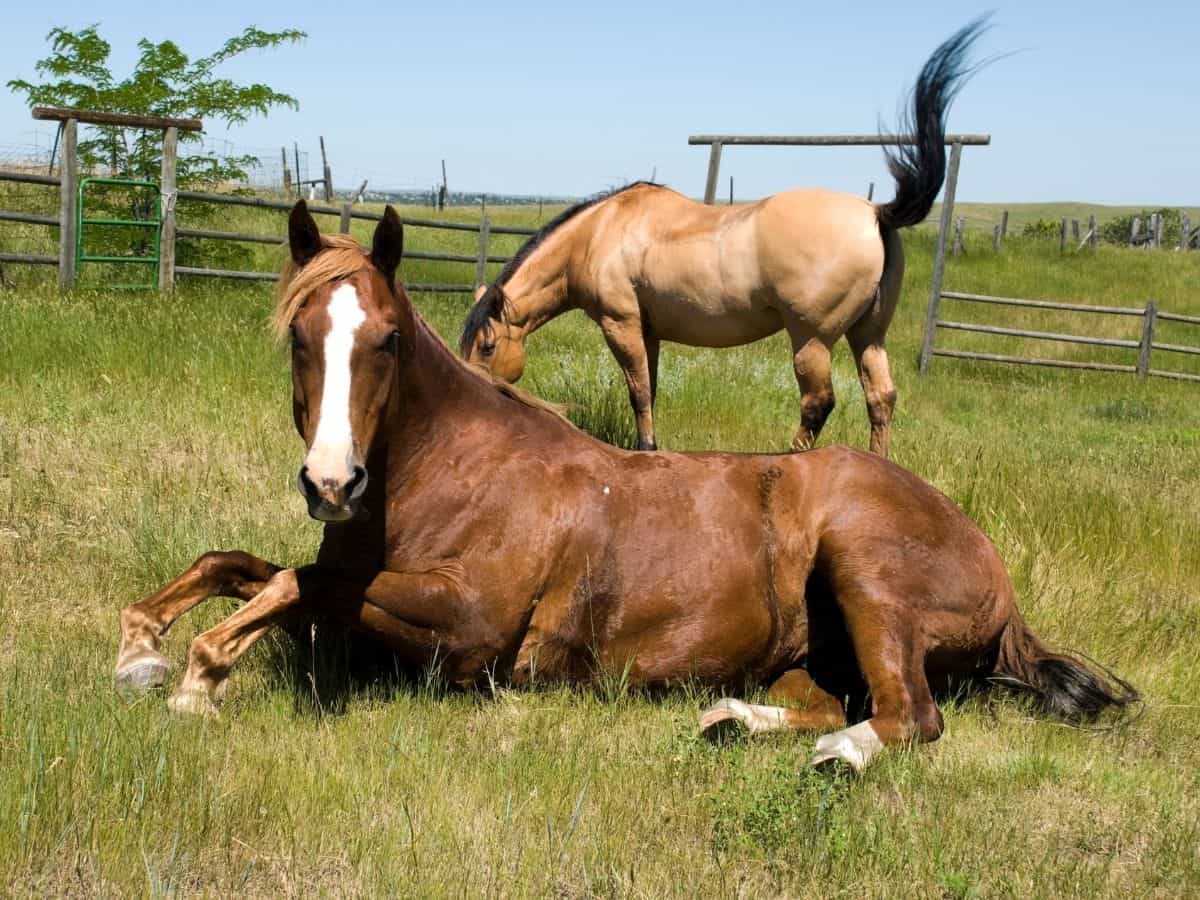
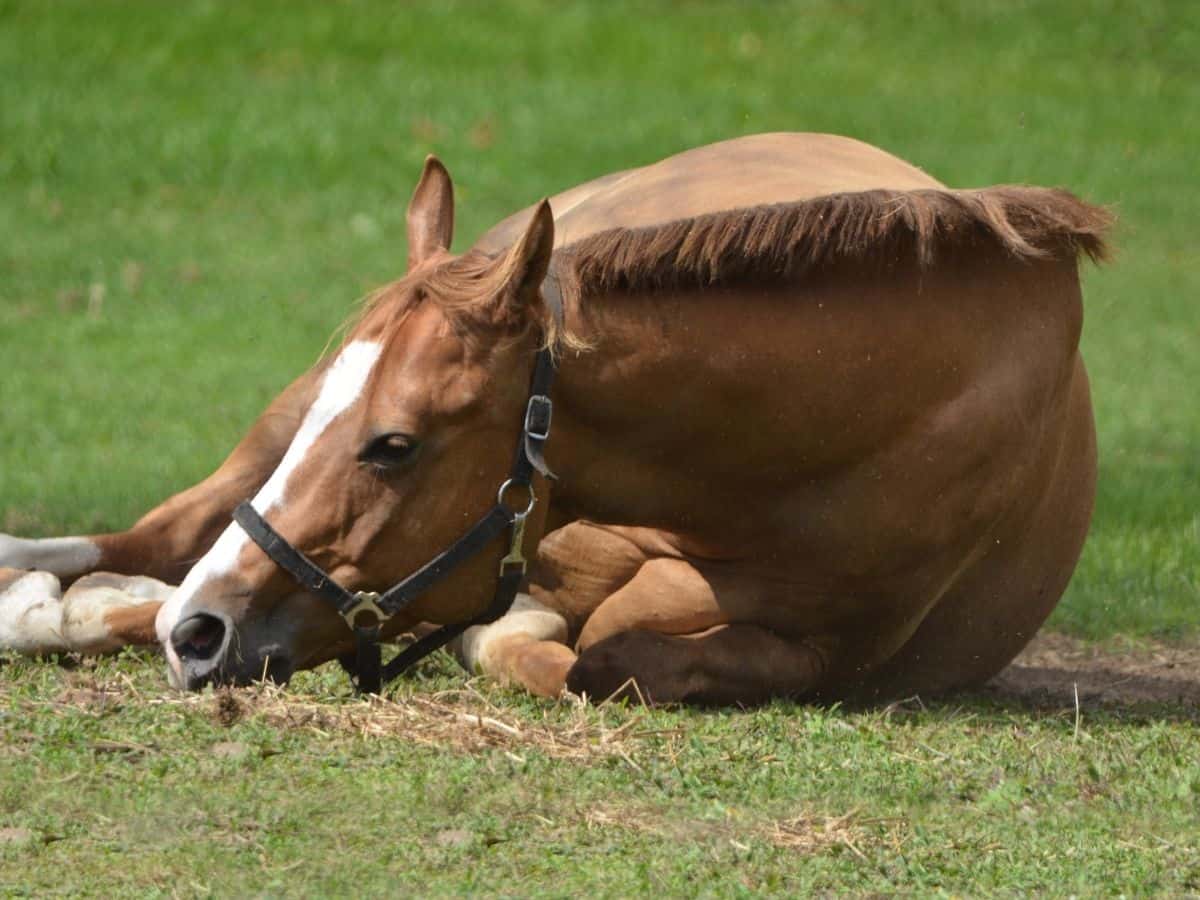
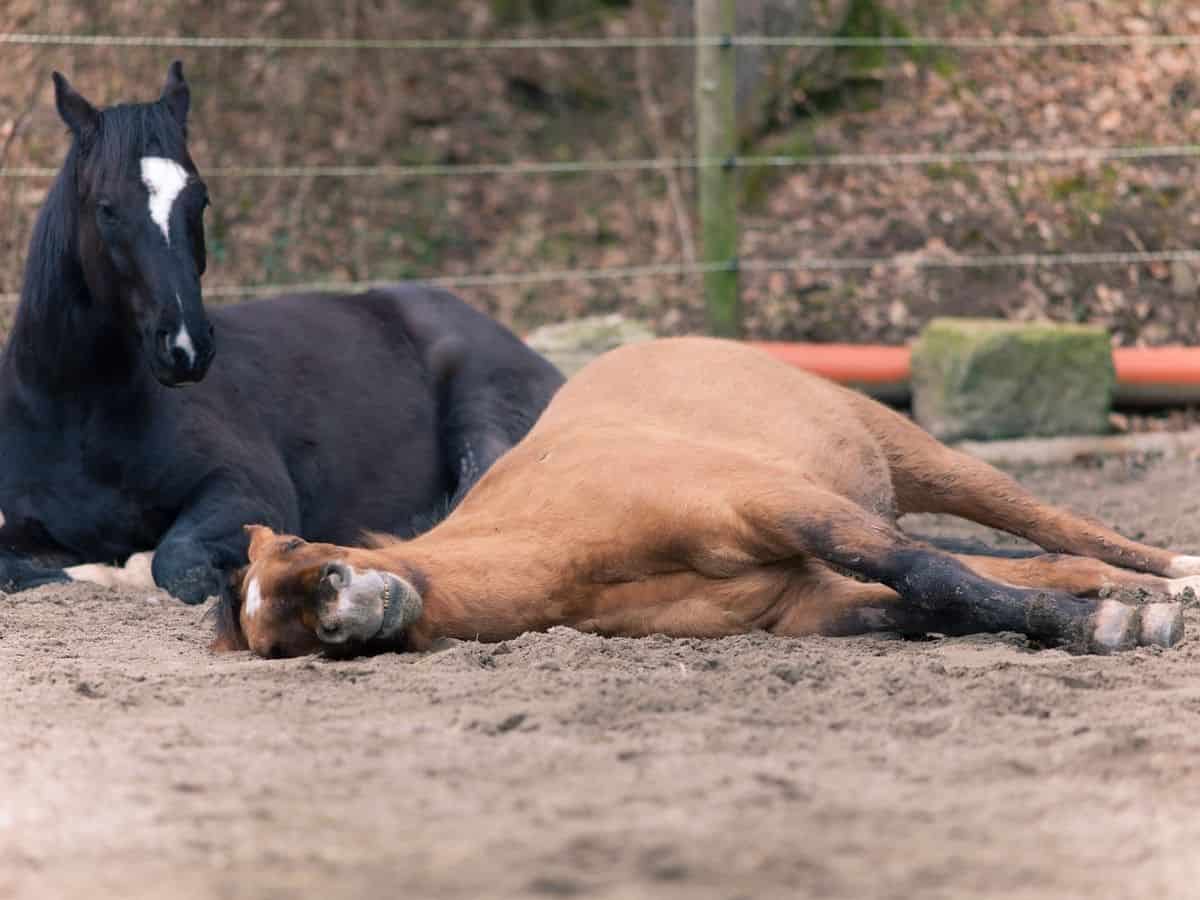
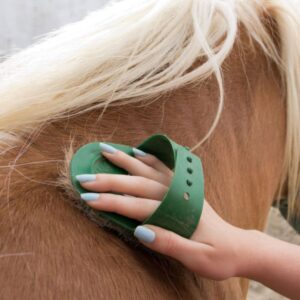

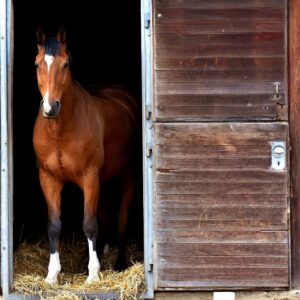
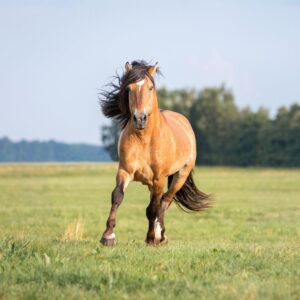
Leave a Reply